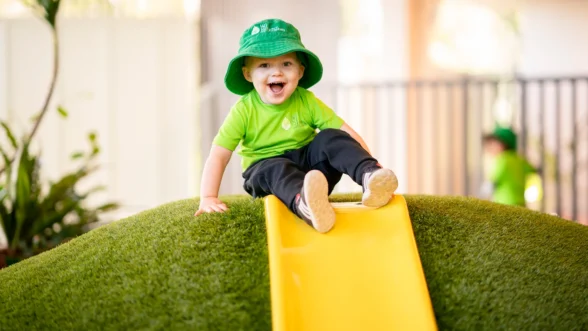
Education, Wellbeing
Education, Useful tools, Wellbeing
17 January, 2026

Our children have been through a lot these past few years, and their school lives have been especially disrupted. It’s not unsurprising that their feelings about returning to the classroom will be a bit… well, confusing.
Studies show that rates of anxiety and depression among children have risen sharply. Given that the back-to-school period can be turbulent under normal circumstances, it goes without saying that this year will be even more so.
But how can you tell if your child has back-to-school anxiety? While all children will exhibit different behaviours, there are a few tell-tale signs to look out for.
Now that you know what to look out for, it’s even more important to know how to address it.
Like with most things, preparation is key. A few weeks before their first day at school, prepare your child for their new routine by adjusting their bedtime, preparing the clothes they will wear the following day, and even packing a lunch box. These small actions can help them become more used to the practicalities of returning to school – or going for the first time – and ease them into this big adjustment.
Another way to help them become more familiar with school is by arranging opportunities for them to interact with their fellow students. This could mean teeing up playdates with their school friends, joining a social or activity group affiliated with the school, or connecting with the parents of other first-time students to allow your child to make friends.
If you can, try to visit their school before the first day back – especially if your child will be starting there for the first time. Whether you go for a walk through the campus, play on the playground with them or simply walk by their school and point out the drop-off zones and facilities, let them actually see the place they will be going to school. This will make that first day (or first day back) a little bit easier.
To encourage positive attitudes to school, establish a rewards system. Make sure they play a role in choosing their reward, too. Maybe they want to get a milkshake at a local café every Friday afternoon when they’ve attended school for a full week? Or perhaps watch half an hour of TV after school when they’ve had a positive drop-off experience?
Finally, acknowledge that what they are going through is not only normal but totally justified. Returning to school – or going for the first time – is a big deal, especially in the current circumstances. Let them know that you hear their concerns and are there to help, and they’ll be happily running through those gates (barely leaving time to say a proper goodbye to you) before you know it.
We’ve listed first-day traditions that you could introduce to help create excitement around the first day!